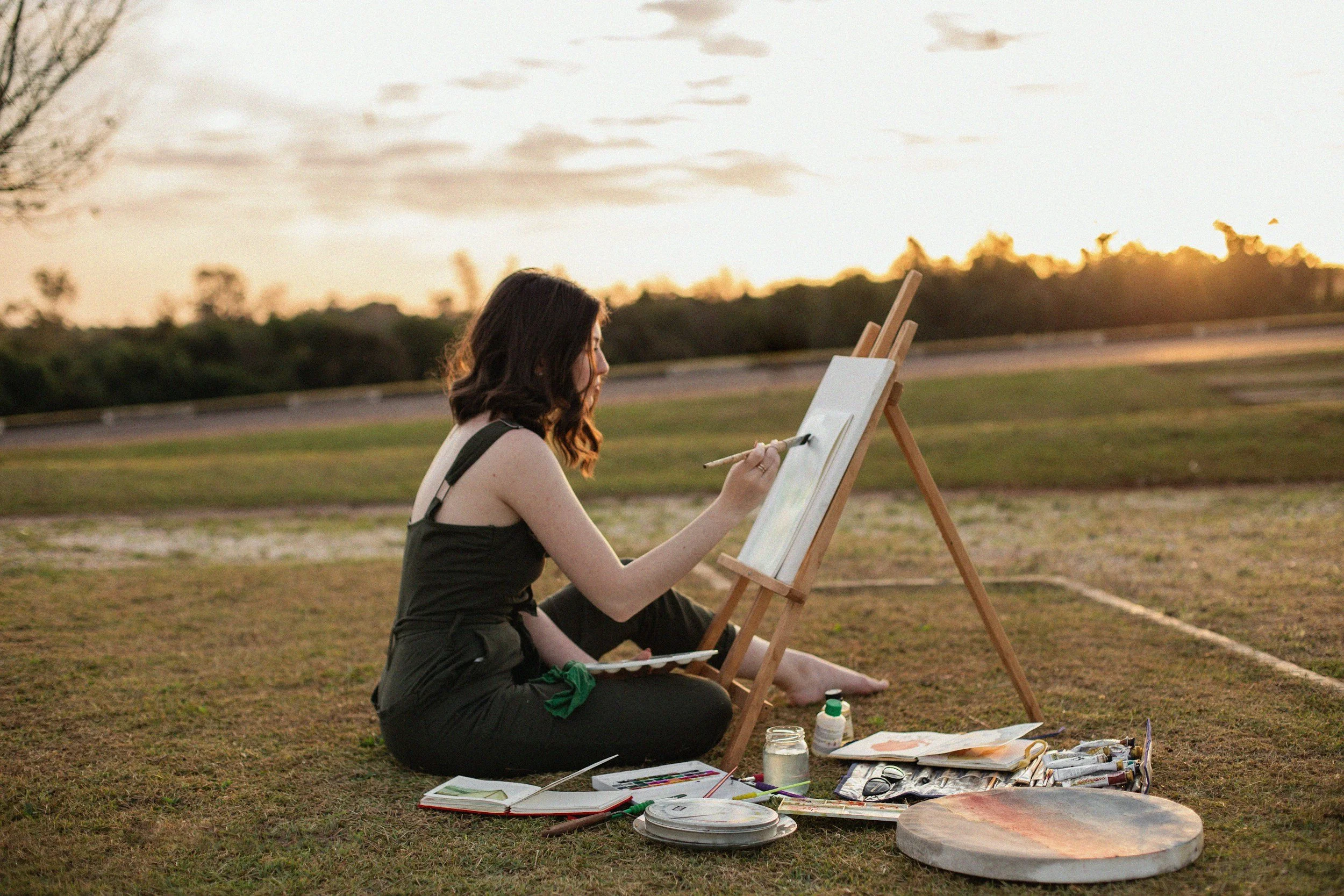How Creativity Can Support Your Mental Health
By Andrea Gonzalez
Published on August 8, 2025
Creativity isn’t just for artists—it’s for everyone who picks up a notebook, a canvas, some pens/pencils, and wants to create. And it’s more powerful than you might think.
From reducing anxiety to building emotional resilience, creative expression plays a key role in supporting mental health. Yet, in the busyness of modern life, many people believe they “aren’t creative” or “don’t have time.” But this is far from the truth, you don’t need hours or a masterpiece. You just need a willingness to explore.
As a licensed clinical psychologist in Miami, Dr. Dumas often recommends creative practices as a therapeutic tool. Whether it’s collages, mindful practices, etc.—small moments of creativity can help regulate emotions, increase mindfulness, and create space for joy.
Why Creativity Supports Mental Wellness
Research in psychology and neuroscience consistently shows that creativity boosts well-being by:
● Activating the brain’s reward system, increasing dopamine—the “feel-good” chemical (Tamlin et al., 2016)
● Reducing rumination and symptoms of depression and anxiety (Kaimal et al., 2016)
● Promoting mindfulness by helping you stay present in the moment
● Offering a safe outlet to express complex or unspoken emotions
According to the American Psychological Association, creative engagement also improves psychological flexibility—a trait that helps us better cope with stress and adapt to life’s challenges (APA, 2020).
Five Ways to Be Creative Every Day
You don’t need a paintbrush or a musical instrument to tap into creativity. Inspired by Positive News, here are five everyday ways to nurture your creative self and support your mental health:
1. Keep a Visual or Written Journal
Journaling—whether in words or images—helps reduce stress, boost insight, and process difficult emotions (Pennebaker & Smyth, 2016). There are different types of journaling that you can do. For example, ‘junk journaling’ has become such a famous way of journaling, it consists of gathering different materials– receipts, newspaper, even napkins, pictures, etc– and gluing them to pages in the journal. You don’t need to buy much, some glue, maybe some scissors, and the rest you can most likely find at home!
2. Make Something with Your Hands
Crafting, cooking, or gardening can produce a calming, meditative effect. These activities engage your senses and create a sense of control and completion (Fancourt & Finn, 2019).
3. Take a Creative Walk
Take a walk, maybe try a mindful photo walk. Notice new textures or colors and take pictures of small details. This cultivates attention and gratitude—two traits closely linked with improved mental health (Kiken et al., 2017).
4. Play with Music or Movement
Singing or dancing (even alone!) reduces cortisol levels and increases feelings of connection and pleasure (Fancourt et al., 2016).
5. Set a 10-Minute Creativity Timer
Have just 10 minutes? Set a timer and draw, write, or create without worrying about the outcome. The act itself—not the product—is what matters for your brain and mood (Positive News, 2024).
What Gets in the Way
Perfectionism, fear of judgment, or feeling “not good enough” can block creativity. Many adults stop exploring creative outlets because they believe it has to be “good” to be worthwhile.
But in therapy—and in life—creative expression is about process, not perfection. It’s about listening inward and expressing freely.
How Therapy Can Help You Reconnect with Creativity
Therapy is a creative space. At Baypoint Counseling Center, Dr. Dumas often creates workshops with an emphasis in art and how it can help mental health. These workshops help people reconnect with themselves and their emotions through creativity.
If you’ve been feeling anxious, disconnected, or stuck, integrating creativity into your life might be the shift you need. It’s not about becoming an artist—it’s about becoming more whole.
Looking for Mental Health Support in Miami?
At Baypoint Counseling Center in Miami, we help clients build emotional wellness through creative, evidence-based practices. Whether you’re coping with stress, anxiety, or depression, you deserve space to express and heal.

